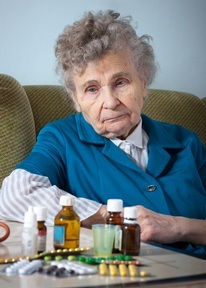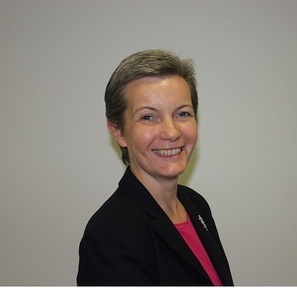CQC to look at using hidden cameras and 'mystery shoppers' to monitor care homes
The Care Quality Commission is taking a “fresh” and “tough” approach to regulation of care homes and as well as introducing an Ofsted-style ratings system for care homes, will be looking at monitoring standards of care homes through covert surveillance and ‘mystery shoppers’.

In Spring next year, the Care Quality Commission (CQC) will consult on the potential benefits and risks of ‘mystery shoppers’ and hidden cameras to monitoring care and whether they can contribute to promoting a culture of safety and quality, while respecting people’s privacy and dignity.
“We know that ‘mystery shoppers’ and hidden cameras can help ”in uncovering “care that has not been good”, said Andrea Sutcliffe in her new role as the first chief inspector for adult social care.
But at the moment, it is just about “having a conversation about the risks and benefits” as “we have to consider the privacy and dignity of the person receiving care”. She promised to “look at what carers think, what the person receiving the care thinks and what the providers think” and acknowledged that hidden cameras have been very useful on certain BBC programmes in “exposing poor care”.
However, Davina Ludlow, director of carehome.co.uk, leading guide to care homes, expressed concern over the proposals. She said: “Whilst safeguarding is vital, so too is dignity and privacy.
“We urge full and meaningful consultation before ‘digital spies’ infiltrate the care sector. Not only will covert surveillance impact on residents’ freedom, it may also have a knock on effect on the motivation of staff.
“We need to train, support and inspire the next generation of carers; not create a Big Brother culture where people are afraid to do this vital job.”
Hidden cameras and ‘mystery shoppers’ are just two of the proposals in ‘A Fresh Start’ which aims to transform the way the CQC monitors, inspects and regulates care homes, home care and other adult social care services.
Ms Sutcliffe said: “This is a fresh start for how care homes, home care and other adult social care services are inspected and regulated across the country.”
She added: “We will always be on the side of the people who use care services. For every care service we look at, I want us to ask, is this good enough for my Mum? If it is, this should be celebrated. If not, then as the regulator, we will do something about it.”
Under ‘A Fresh Start’, there will be a greater focus on public involvement with inspection teams including ‘experts by experience’ such as family carers and people who have lived in care homes or used home care services.
Next year will also see a return to a ratings system for care homes, with an Ofsted-style rating system introduced where care services will be rated Outstanding, Good, Requires improvement and Inadequate. Ms Sutcliffe claimed that since the CQC stopped rating care homes in 2010, there has been “a gap” with a proliferation of rating services springing up to assess care providers.

The new ratings system being proposed by the CQC will be based on information already held by the CQC and will also be linked to the findings of CQC inspectors. Care homes will be rated on safety, effectiveness, caring, whether they are responsive to people’s needs, and whether they are well led.
The CQC is also looking at offering care providers the opportunity to pay for an additional inspection in some circumstances if they believe the quality of their service has improved.
To achieve an Outstanding rating, care home providers will have to show they give ‘truly person centred care’. They will also have to show they support people in their choice of where to die and show that as a result of their good care, people are admitted to hospital less frequently. Inspectors will also look at how compassionate staff are.
In terms of monitoring care, the CQC will be more proactive in “listening to complaints and what whistleblowers have to say”, said Ms Sutcliffe.
To prevent another Southern Cross crisis occurring, from April 2015 and subject to the Care Bill becoming law, the CQC will also monitor the finances of an estimated 50 to 60 care home providers that would leave residents in a difficult situation if they were to go out of business. “We will look at their financial and business model and how sustainable they are and whether they have a contingency plan.”
Ms Sutcliffe also pledged to take tough action against care homes that go for a long period of time without a registered manager and said in terms of inspections, we are “building on a more rigorous approach”.
“We are entitled to take enforcement action if something is not right. Some people have felt we have not been as responsive as we could have been in the past.”
Inspection teams will be made up of specialist inspectors and also ‘experts by experience’. There are currently around 300 of these but Ms Sutcliffe envisages this number doubling.
In response to the CQC’s proposals, Norman Lamb, Care and Support Minister, said: “No one should have to put up with substandard care – there are serious flaws in the system when people are worrying about the quality of care their loved ones are receiving. We have made it clear that there must be a sharper focus on taking tougher action when things go wrong and holding those responsible to account.
“Confidence in the regulation regime has been shaken, but we have turned a corner. I welcome the chief inspector’s new commitment to protecting people vulnerable to abuse and neglect, and to delivering better care.”
Professor Martin Green, chief executive of the English Community Care Association, called the appointment of a chief inspector for adult social care a “positive step” and said: “The development of a new approach to how CQC will regulate and inspect care services offers an opportunity to ensure that high quality regulation is the foundation of good quality care.”
George McNamara, head of policy and public affairs at the Alzheimer’s Society, welcomed the plans to “overhaul adult social care inspections at a time when public confidence in the care sector is at an all-time low. With most adults in the UK scared of moving into a home and care in the community often failing to meet people’s needs, we desperately need to restore faith in services.
But he warned: “Eighty per cent of people in care are living with dementia or memory problems and many more rely on help in the community. As well as involving the public, inspections and ratings have to place the voices of people with dementia at their heart if they are to avoid being meaningless.”
If you want to have your say on this controversial proposal please go to our debate on the issue at www.carehome.co.uk/news/article.cfm/id/2/should-there-be-ctv-in-care-homes
Latest News Analysis
 04-Sep-19
Extra £1.5 billion announced for social care in Chancellor's Spending Review
04-Sep-19
Extra £1.5 billion announced for social care in Chancellor's Spending Review
 02-Jul-19
Department of Health forced to rethink care homes' nursing rates after legal challenge
02-Jul-19
Department of Health forced to rethink care homes' nursing rates after legal challenge
 18-Jun-19
Overnight care workers forced to sleep in offices and told 'bring your own bedding'
18-Jun-19
Overnight care workers forced to sleep in offices and told 'bring your own bedding'
 14-Jun-19
Back in the closet: Third of care home staff have had no LGBT+ awareness training
14-Jun-19
Back in the closet: Third of care home staff have had no LGBT+ awareness training
 11-Jun-19
PM candidates on social care: Rory Stewart calls fixing care an 'unfinished revolution'
11-Jun-19
PM candidates on social care: Rory Stewart calls fixing care an 'unfinished revolution'